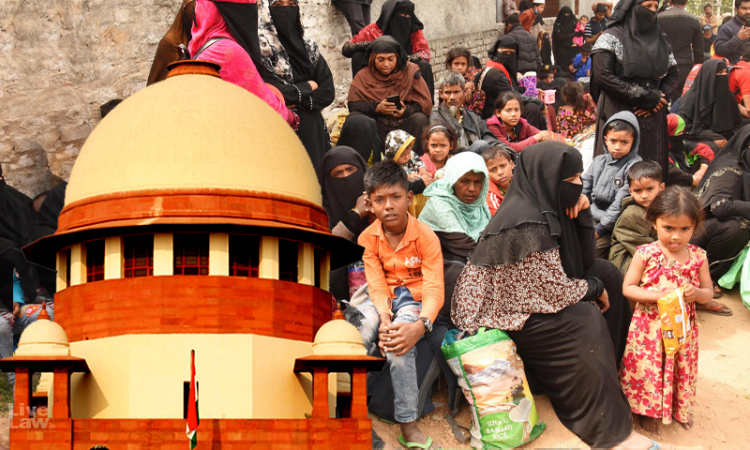Supreme Court Reserves Orders On Plea Against Deportation of Rohingya Refugees In Jammu
LIVELAW NEWS NETWORK
26 March 2021 1:12 PM IST

Next Story
26 March 2021 1:12 PM IST
The Supreme Court on Friday reserved for orders a plea seeking directions for release of the Rohingya refugees who have been detained in Jammu and to restrain the government from deporting them to Myanmar.A bench comprising CJI SA Bobde, Justices AS Bopanna and V Ramasubramaniam was hearing an interim application filed by a PIL petitioner Mohammad Salimullah seeking protection of Rohinya...
